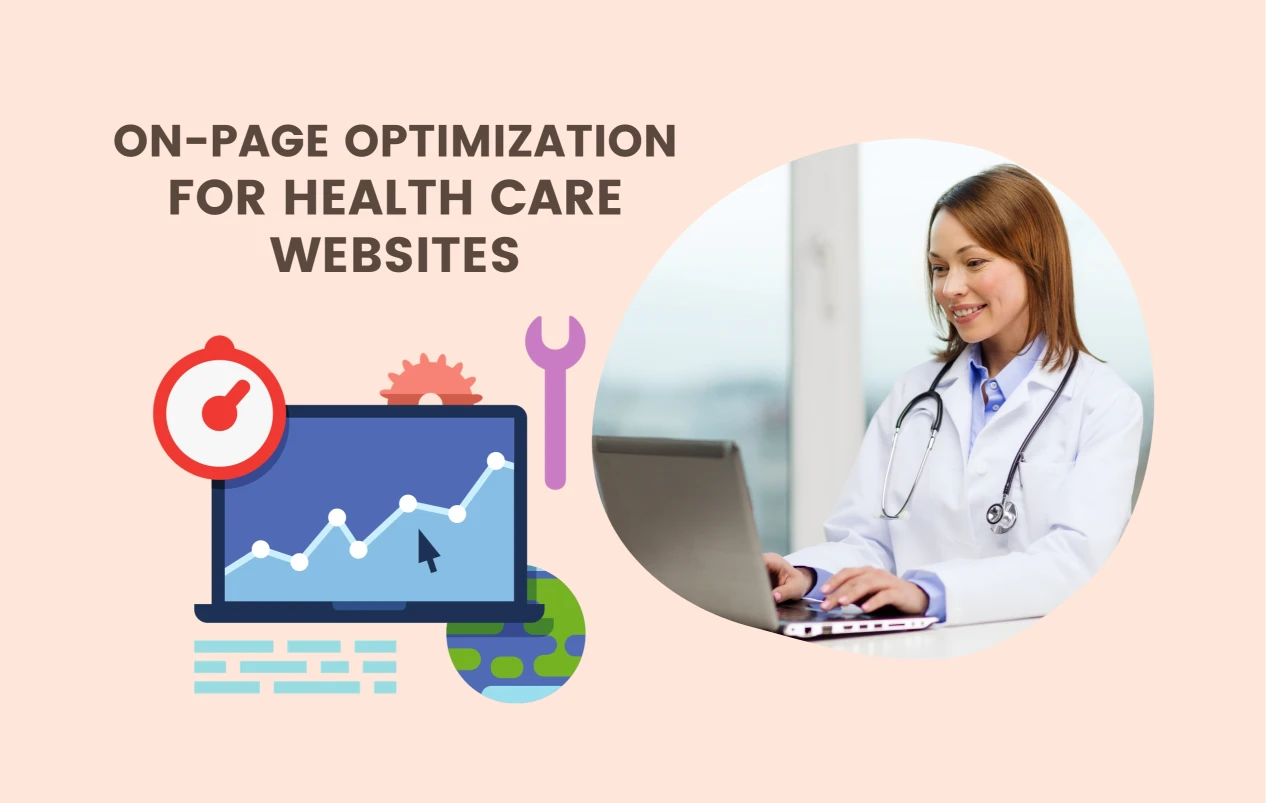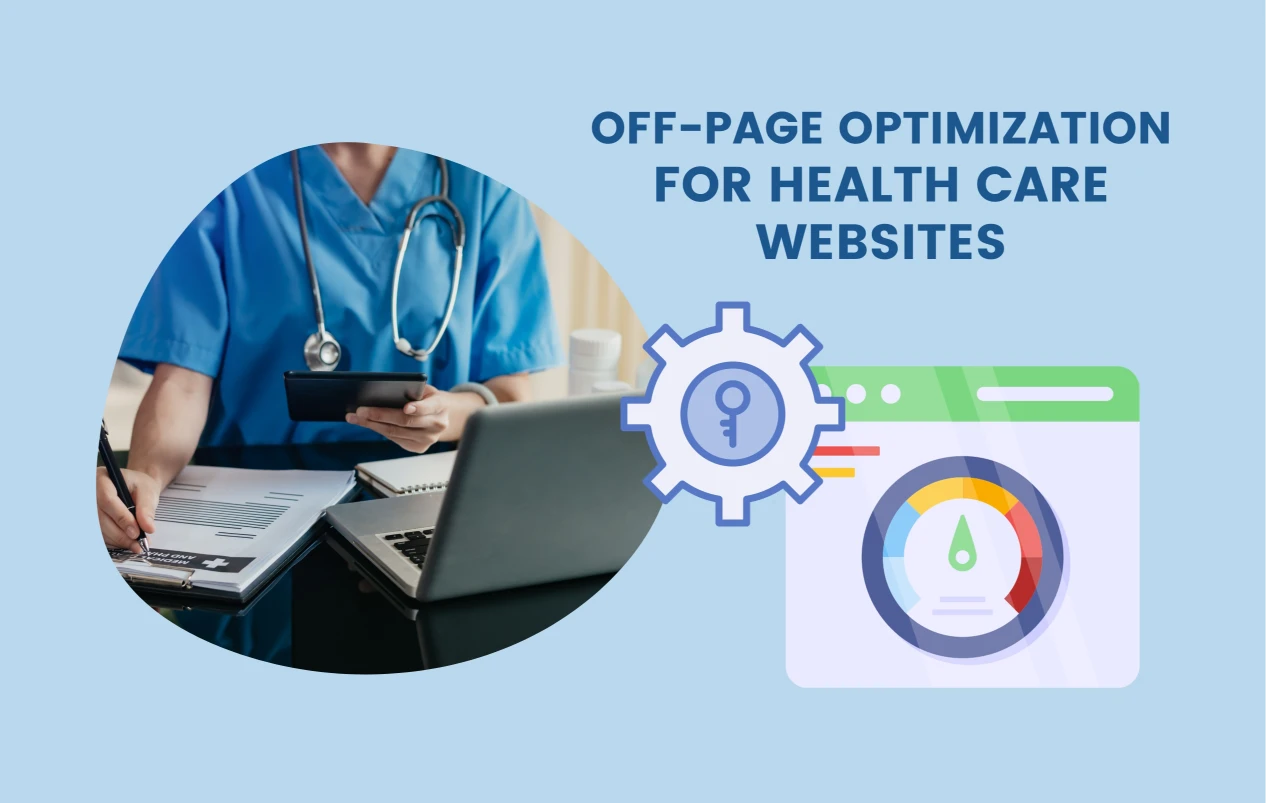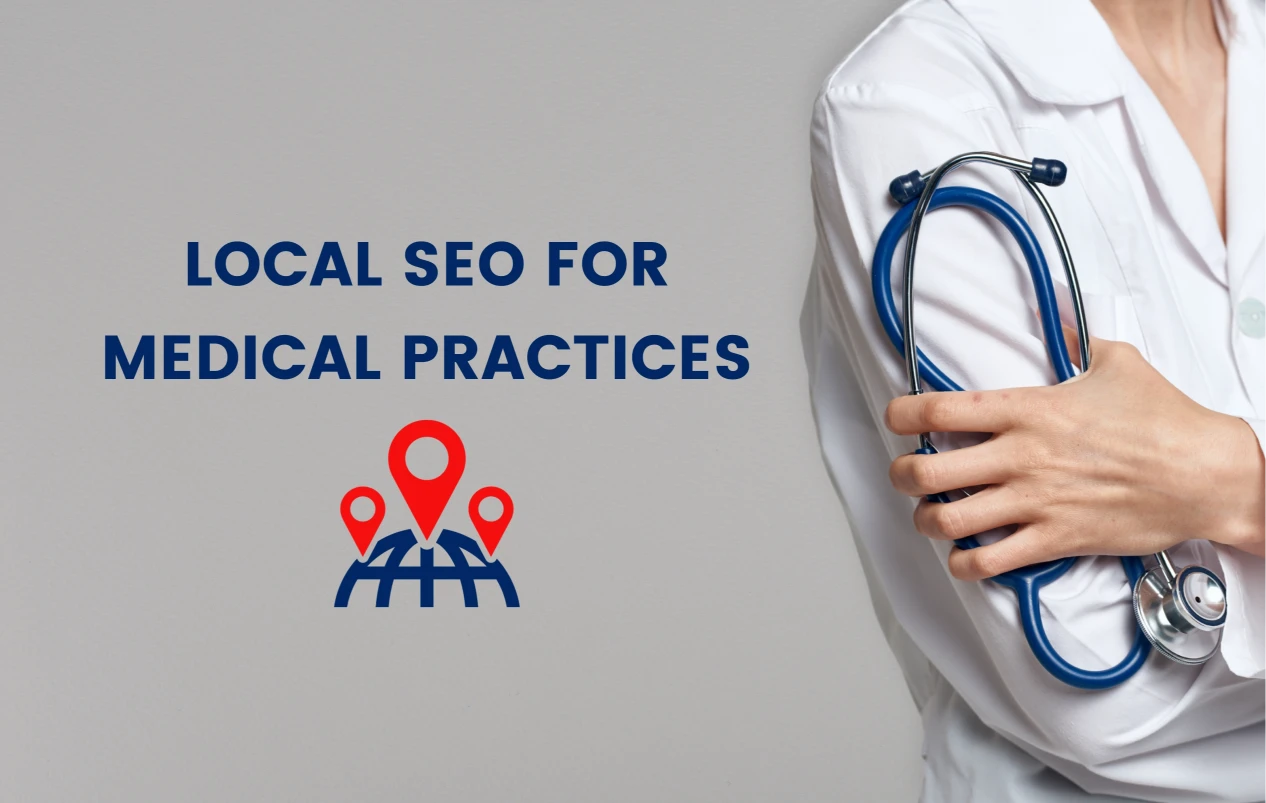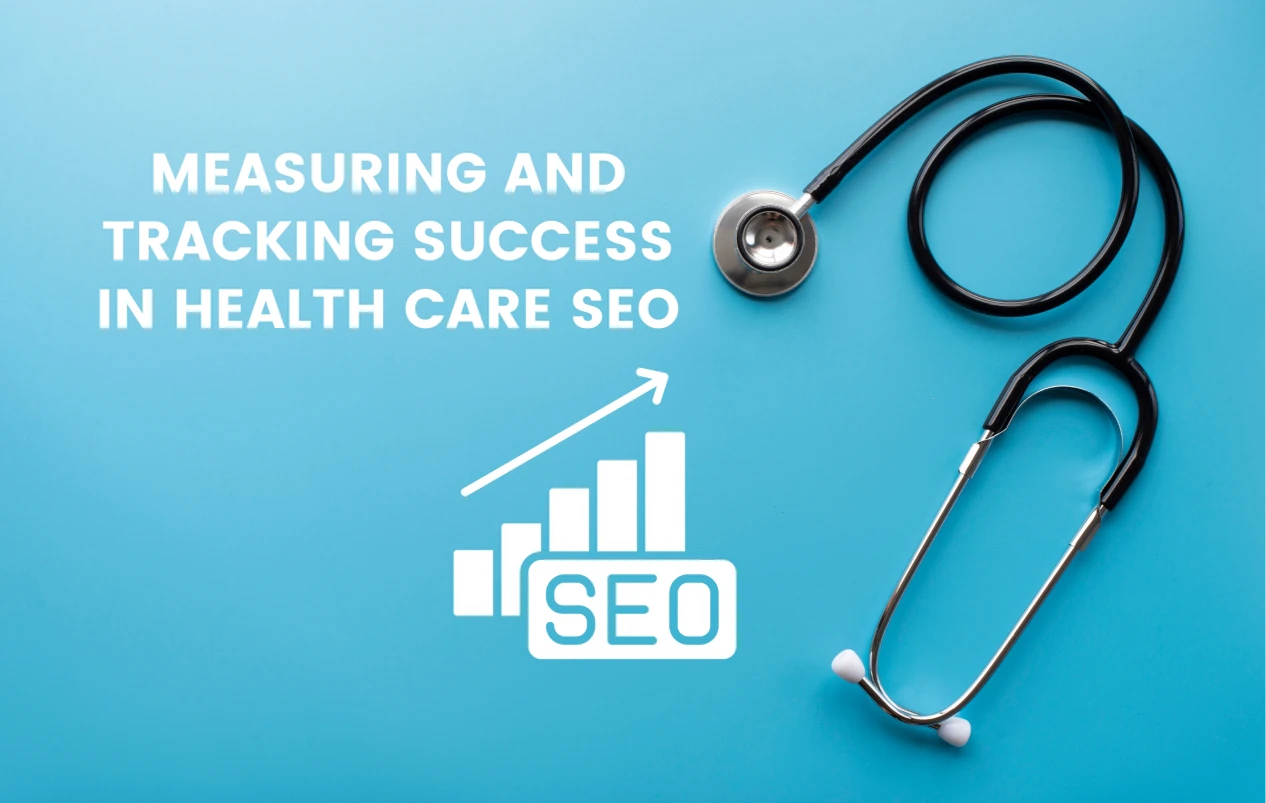The Ultimate Guide to Healthcare SEO: Maximizing Your Digital Presence in the Medical Field
Welcome to the ultimate guide on healthcare SEO, where we’ll explore the strategies and tactics you need to maximize your digital presence in the medical field. In today’s digital age, having a strong online presence is crucial for any healthcare organization or professional looking to attract and retain patients.
With the right SEO techniques, you can ensure that your website ranks high on search engines, making it easier for potential patients to find you when they need medical services. This guide will walk you through the essential steps to optimize your website, including keyword research, on-page optimization, and building high-quality backlinks.
We will also discuss specific SEO strategies tailored to the healthcare industry, such as optimizing for local searches and leveraging online reviews. Additionally, we’ll delve into the importance of mobile optimization and how it impacts your search rankings.
By following the strategies outlined in this guide, you can strengthen your digital presence, increase your visibility to potential patients, and ultimately drive more traffic to your website. Let’s get started on maximizing your healthcare SEO and taking your online presence to new heights.
In this comprehensive guide, we will walk around the SEO marketing meaning, shedding light on its significance in the healthcare industry.
Why Is SEO Important for Medical Websites?

In the highly competitive healthcare industry, having a well-optimized website can make all the difference in attracting patients and growing your practice. By implementing effective SEO strategies, you can ensure that your website ranks higher in search engine results, increasing your visibility to potential patients.
One of the main reasons why SEO is important for medical websites is that it helps you target specific keywords related to your practice. By conducting thorough keyword research, you can identify the terms that potential patients are using to search for medical services. This allows you to optimize your website’s content and structure to align with those keywords, making it more likely for search engines to recognize your website as relevant and authoritative.
Another benefit of SEO for medical websites is that it helps improve the user experience. By optimizing your website’s loading speed, mobile responsiveness, and overall usability, you can provide a seamless browsing experience for your visitors. This not only increases the chances of them staying on your website longer, but it also encourages them to engage with your content and take the desired actions, such as booking an appointment or contacting your practice.
In summary, SEO is important for medical websites because it helps you target relevant keywords, provides a better user experience, and builds credibility with potential patients. As we explore effective strategies, you’ll also discover how to craft an SEO guide for dentists, catering to specific medical niches like dentistry.
Understanding Medical Keywords

You should start by discussing the fundamentals, including what niche marketing entails and how it applies to healthcare organizations.
Keyword research is the foundation of any successful SEO strategy, and it’s no different for medical websites. Understanding the medical keywords that potential patients are using to search for healthcare services is crucial in optimizing your website’s content and structure.
When conducting keyword research for medical websites, it’s important to focus on both general and specific keywords. General keywords, such as “family doctor” or “pediatrician,” can help you reach a broader audience. However, they are also highly competitive, making it more difficult to rank higher in search results.
On the other hand, specific keywords, also known as long-tail keywords, are more targeted and usually have less competition. Examples of specific keywords for medical websites include “best pediatrician in [city name]” or “affordable dental implants in [location].” By targeting these specific keywords, you can increase your chances of ranking higher in search results and attracting more qualified leads.
Additionally, it’s important to consider the intent behind the keywords. Are potential patients looking for general information about a medical condition or are they actively seeking a healthcare provider? By understanding the intent behind the keywords, you can tailor your content to provide the most relevant information and meet the needs of potential patients.
In conclusion, understanding medical keywords and conducting thorough keyword research is essential in optimizing your website’s content and structure.
On-page Optimization for Health Care Websites

On-page optimization refers to the process of optimizing individual web pages to improve their visibility in search engine results. By implementing on-page optimization techniques, you can make your medical website more search engine friendly and increase your chances of ranking higher.
One of the most important on-page optimization factors is the title tag. The title tag appears as the headline in search engine results and should accurately describe the content of the web page. It’s recommended to include relevant keywords in the title tag to improve its visibility to search engines.
Another crucial on-page optimization factor is the meta description. The meta description is a brief summary of the web page’s content and appears below the title tag in search engine results. It’s important to write a compelling and concise meta description that entices users to click on your website.
In addition to optimizing the title tag and meta description, it’s important to optimize the URL structure, headings, and content of your medical website. Including relevant keywords in the URL and headings can help search engines understand the context of the web page. Moreover, creating high-quality and informative content that satisfies the intent of potential patients is essential in driving organic traffic to your website.
Off-page Optimization for Health Care Websites

Off-page optimization refers to the activities you undertake outside of your website to improve its visibility and authority in search engine results. While on-page optimization focuses on optimizing the content and structure of your medical website, off-page optimization focuses on building external signals that indicate your website’s credibility and relevance.
One of the most important off-page optimization factors is building high-quality backlinks. Backlinks are links from other websites that point to your website. Search engines consider backlinks as votes of confidence, indicating that other websites find your content valuable and trustworthy.
However, not all backlinks are created equal. It’s important to focus on acquiring backlinks from authoritative and relevant websites in the medical field. This can be done through strategies such as guest blogging, reaching out to industry influencers, or creating valuable content that naturally attracts backlinks.
In addition to building backlinks, off-page optimization also includes social media marketing, online reputation management, and online directory listings. Maintaining an active presence on social media platforms can help increase your brand visibility and attract potential patients. Managing your online reputation by responding to reviews and addressing patient feedback is crucial in building trust and credibility. Lastly, listing your medical practice in relevant online directories can improve your local search visibility and drive more traffic to your website.
Local SEO for Medical Practices

Local SEO is a subset of SEO that focuses on optimizing your medical practice’s online presence for local searches. Local SEO is especially important for medical practices, as patients are more likely to search for healthcare services in their local area.
1. Claim and Optimize for Google Listing
One of the first steps in optimizing your medical practice for local searches is to claim and optimize your Google My Business listing. Google My Business is a free tool that allows you to manage how your practice appears on Google search and maps. By providing accurate and up-to-date information, such as your practice’s name, address, phone number, and hours of operation, you can increase your chances of appearing in local search results.
2. Content Optimization for Local Keywords
Another important aspect of local SEO for medical practices is optimizing your website’s content for local keywords. This includes incorporating location-specific keywords in your website’s content, meta tags, and URLs. For example, if your practice is located in New York City, including keywords like “New York City doctor” or “medical services in NYC” can help improve your visibility for local searches.
3. Ask Your Patients for Online Reviews and Ratings
Additionally, encouraging patients to leave online reviews and ratings on platforms such as Google, Yelp, or Healthgrades can significantly impact your local search rankings. Positive reviews not only provide social proof of your practice’s quality and reputation but also improve your visibility in search results.
4. Become Involved in the Local Community
Lastly, participating in local community events, sponsoring local organizations, and creating locally focused content can also help improve your practice’s local search visibility. By becoming involved in your community, you can build brand awareness and attract potential patients who are searching for healthcare services in your area.
In conclusion, local SEO is crucial for medical practices looking to attract patients in their local area. By claiming and optimizing your Google My Business listing, incorporating local keywords, encouraging online reviews, and participating in local community events, you can improve your local search visibility and attract more local patients.
Moving on, we’ll Fight into the battle! the importance of Google My Business optimization for medical practices, especially in regions like Maryland.
Mobile Optimization for Health Care Websites

In today’s mobile-first world, having a mobile-optimized website is no longer a luxury but a necessity. With the increasing number of users accessing the internet through mobile devices, search engines prioritize mobile-friendly websites in their rankings.
One of the most important aspects of mobile optimization is responsive web design. Responsive web design ensures that your website is easily accessible and user-friendly across different screen sizes and devices. By adopting a responsive web design, you can provide a seamless browsing experience for mobile users, reducing bounce rates and increasing engagement.
In addition to responsive web design, optimizing your website’s loading speed is also crucial for mobile optimization. Mobile users expect fast-loading websites, and search engines take loading speed into consideration when ranking websites. Compressing images, minifying CSS and JavaScript, and leveraging browser caching are some of the techniques that can help improve your website’s loading speed.
To summarize, mobile optimization is crucial for health care websites to provide a seamless browsing experience for mobile users. By adopting responsive web design, optimizing loading speed, optimizing content for mobile devices, and leveraging mobile-specific features, you can improve your website’s mobile-friendliness and increase your chances of ranking higher in mobile search results.
Content Strategy for Health Care SEO

A well-executed content strategy can significantly impact your health care SEO efforts. By creating high-quality and informative content that meets the needs of potential patients, you can increase your website’s visibility in search engine results and attract more organic traffic.
One of the first steps in developing a content strategy for health care SEO is conducting thorough keyword research. By identifying the keywords that potential patients are using to search for medical services, you can create content that aligns with those keywords and increases your chances of ranking higher in search results.
When creating content for health care SEO, it’s important to focus on relevance, quality, and depth. Your content should provide valuable information that educates and engages potential patients. This includes answering frequently asked questions, addressing common concerns, and providing insights into the latest medical advancements and treatments.
Moreover, it’s important to diversify your content formats to cater to different preferences and needs. This can include blog articles, videos, infographics, podcasts, or interactive tools. Diversifying your content formats not only helps you reach a wider audience but also enhances the user experience and encourages engagement.
Additionally, incorporating local keywords and topics in your content can help improve your local search visibility. By creating content that is specific to your local area, such as featuring local events or discussing healthcare issues relevant to your community, you can attract more local patients and improve your chances of appearing in local search results.
Measuring and Tracking Success in Health Care SEO

Measuring and tracking the success of your health care SEO efforts is essential in determining the effectiveness of your strategies and making data-driven decisions for optimization.
One of the most important metrics to track in health care SEO is organic traffic. Organic traffic refers to the visitors who reach your website through search engine results. By monitoring your organic traffic over time, you can identify trends and patterns, and measure the impact of your SEO efforts on your website’s visibility.
In addition to organic traffic, it’s important to track keyword rankings. By monitoring the positions of your targeted keywords in search engine results, you can assess the effectiveness of your on-page and off-page optimization strategies. If you notice a decline in keyword rankings, it may indicate that you need to revisit your optimization efforts or adjust your content strategy.
Furthermore, tracking conversion metrics, such as form submissions, appointment bookings, or phone calls, is crucial in determining the return on investment (ROI) of your health care SEO efforts. By analyzing the conversion rates and attributing them to specific SEO strategies, you can identify the most effective tactics and allocate resources accordingly.
Conclusion: Taking Your Medical Website to the Top of Search Engine Results
In today’s digital age, having a strong online presence is crucial for medical professionals and organizations looking to attract and retain patients. By implementing effective SEO strategies, you can maximize your digital presence and increase your visibility to potential patients.
Throughout this ultimate guide, we’ve explored the essential steps to optimize your medical website for search engines. From understanding medical keywords and conducting thorough keyword research to implementing on-page and off-page optimization techniques, we’ve covered the strategies and tactics you need to take your medical website to the top of search engine results.
We’ve also discussed the importance of local SEO and mobile optimization in attracting local patients and providing a seamless browsing experience on mobile! By the end of this guide, you’ll have gained insights into how Maryland SEO services for healthcare and medical websites can elevate your digital presence.
